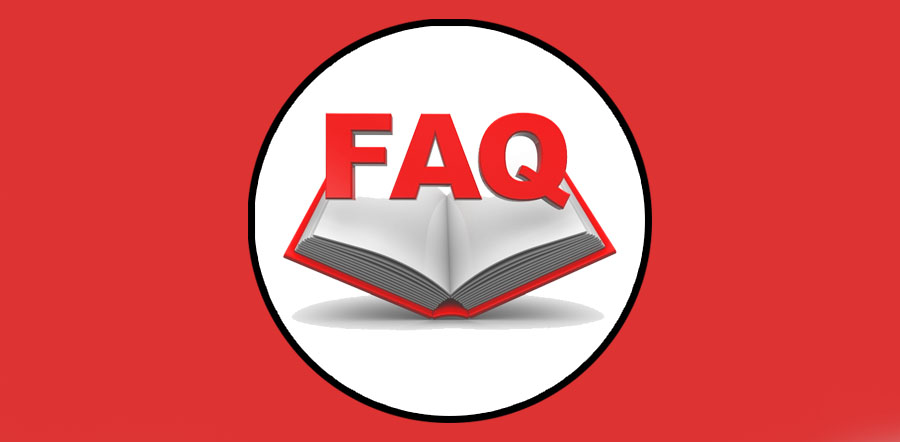CPA-Regulation
Guaranteed Success in CPA-Regulation Exam
| CPA-Regulation Exam Dumps PDF + Practice Test | |||
| Exam: | CPA-Regulation | ||
| Exam Name: | AICPA CPA Regulation Exam | ||
| Certification(s): | Certified Public Accountant | ||
| Questions: | 69 Questions Answers | ||
| Last Updated: | Apr 04,2025 | ||
| Price: | Was: $85 Today: $59 | ||
Check Free Demo Before Buy
$ 99.00 Original price was: $99.00. $ 49.00 Current price is: $49.00.
Are you looking for real CPA-Regulation exam questions ? You’re in the right place!
Pass your AICPA CPA-Regulation exam with the latest QuizDumps PDF Questions & Answers.
QuizDumps offers authentic, updated, and expert-verified CPA-Regulation braindumps.
Want top scores? Start your prep now with QuizDumps study material.
1: Download Q&A PDF
Buy & Download 100% real, updated and verified exam questions and answers tested and prepared by AICPA experts to pass CPA-Regulation exam.
2: Prepare
Prepare for CPA-Regulation with 100% confidence using QuizDumps's CPA-Regulation exam dumps PDF or CPA-Regulation practice exam.
3: Pass Your Exam
QuizDumps's CPA-Regulation exam kit prepares you to confidently ace all CPA-Regulation questions and pass on your first attempt with top scores.
Comments
Main points of AICPA CPA-Regulation Test
The AICPA CPA Regulation exam tests your knowledge of the legal and regulatory framework governing accounting and auditing. The main points covered broadly fall under these categories:
I. Business Law: This section constitutes a significant portion of the exam. Key areas include:
- Contracts: Formation, performance, breach, remedies, defenses (statute of frauds, unconscionability, etc.). Understanding elements of a valid contract is crucial.
- Sales: Article 2 of the Uniform Commercial Code (UCC) focuses on the sale of goods. Knowledge of warranties, risk of loss, and remedies for breach are essential.
- Agency and Partnership: Responsibilities, liabilities, and relationships between principals, agents, and partners. Understanding fiduciary duties is key.
- Corporations: Formation, governance (Board of Directors, shareholders), financing, and liabilities. This includes understanding different types of corporations (S-corp, C-corp).
- Securities Regulation: Basic understanding of federal securities laws (like the Securities Act of 1933 and the Securities Exchange Act of 1934). Though not deeply technical, you should grasp the basics of registration requirements and anti-fraud provisions.
- Bankruptcy: Rudimentary understanding of the bankruptcy process, types of bankruptcy filings, and creditor priorities.
II. Professional Responsibilities: This section emphasizes the ethical standards governing CPAs.
- AICPA Code of Professional Conduct: Deep understanding of the rules governing independence, integrity, objectivity, due care, confidentiality, and scope and nature of services. Scenario-based questions testing application of these rules are common.
- State Board of Accountancy Rules: Understanding the rules imposed by the state boards and their enforcement mechanisms.
- Sarbanes-Oxley Act (SOX): Key provisions related to corporate governance, auditor independence, and internal controls.
III. Federal Taxation: While not as extensive as in the CPA exam's other sections, a foundational knowledge of taxation is expected. This typically focuses on:
- Corporate Taxation: Basic understanding of corporate tax rates, deductions, and credits.
- Individual Taxation: Basic concepts related to income and deductions.
Important Considerations:
- Application over Rote Memorization: The exam emphasizes applying legal principles to fact patterns. Understanding the why behind legal concepts is more important than simply memorizing definitions.
- Case Studies and Scenarios: The majority of questions are presented as case studies or scenarios requiring analysis and application of legal principles to specific situations.
- Understanding the Interplay: Many questions will involve multiple areas of law. For instance, a contract dispute may involve agency law and corporate law simultaneously.
Preparing for the CPA Regulation exam requires a systematic approach that combines studying the relevant legal concepts, practicing with multiple-choice questions, and taking practice exams to simulate the actual test environment. Use official AICPA resources and reputable review courses for optimal preparation.
| Exam Code | Certifications | Questions | Comments | Reviews |
|---|---|---|---|---|
| CPA-Business Dumps | Certified Public Accountant | 530 Questions | 0 | 0 |
| CPA-Regulation Dumps | Certified Public Accountant | 69 Questions | 0 | 0 |
| CPA-Financial Dumps | Certified Public Accountant | 163 Questions | 0 | 0 |
Why PDF Format?
Our PDF format offers seamless portability across multiple devices, allowing you to study anytime, anywhere. For a more immersive preparation, our Practice Test software replicates the real exam environment. With various testing modes and advanced self-assessment features, our practice exams stand out as the best in the industry.
Is This User Friendly & Easily Accessible on Mobile Devices?
We are committed to delivering precise CPA Regulation Exam questions and answers, accompanied by detailed explanations. At QuizDumps, we value your time and investment, ensuring that every question and answer is thoroughly verified by AICPA experts. Our team consists of highly qualified professionals with years of hands-on experience in the field, guaranteeing reliable and up-to-date exam preparation.
Are All Materials Verified by Experts?
QuizDumps is a trusted name in certification exam preparation, offering [Authentic, Updated, and Real] CPA-Regulation Dumps, carefully crafted and verified by IT professionals. If you want to achieve top scores, kickstart your preparation today with our comprehensive CPA-Regulation dumps PDF.
What is Our Commitment !
At QuizDumps, we are committed to helping professionals pass their certification exams in the shortest time possible. Our goal is to provide top-quality study materials and exceptional customer support. We continuously enhance our AICPA CPA-Regulation exam preparation resources by updating question banks, adding new features, and promptly addressing any reported issues.

